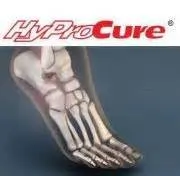Have you been experiencing any heel pain or bothersome tenderness without any obvious cause? Although heel spurs themselves sometimes do not cause acute discomfort, they are frequently associated with the painful inflammation known as plantar fasciitis, a condition commonly described as feeling like a knife is  wrenching through your foot. Read below for more information on the typical causes, symptoms, and treatments of heel spurs.
wrenching through your foot. Read below for more information on the typical causes, symptoms, and treatments of heel spurs.
What is a Heel Spur?
A heel spur is often the result of overstraining foot muscles and ligaments, overstretching the plantar fascia (the thick band of tissue that connects the heel bone to the toes), and repeatedly tearing the heel bone membrane. From these actions arises a calcium deposit on the underside of the heel bone. Risk factor for developing the condition include:
-
Possessing any walking gait abnormalities
-
Regularly running or jogging on hard surfaces
-
Wearing poorly fitted or overly worn shoes
-
Wearing shoes that lack arch support
-
Being excessively overweight or obese
What are The Symptoms?
Heel spurs do not carry many symptoms by themselves. However, they are often related to other afflictions, most typically plantar fasciitis. The most common sign of this combo of conditions is a feeling of chronic pain along the bottom or back of the heel, especially during periods of walking, running, or jogging. If you are experiencing this recurring inflammation, it is a good idea to visit your local podiatrist's office and inquire about undergoing an x-ray or ultrasound examination of the foot.
What are the Treatment Options?
The solutions to heel spurs are generally centered around decreasing inflammation and avoiding re-injury. They include:
-
Applying ice on the inflammation
-
Performing stretch exercises
-
Wearing orthotic devices or shoe inserts to relieve pressure off of the spur
-
Taking anti-inflammatory medications such as ibuprofen to relieve pain
-
In extreme cases, surgery can be performed on chronically inflamed spurs
If you are dealing with symptoms of heel spurs or pain in your feet, turn to a podiatrist so that we can get you back on your feet. Don't ignore your pain.













